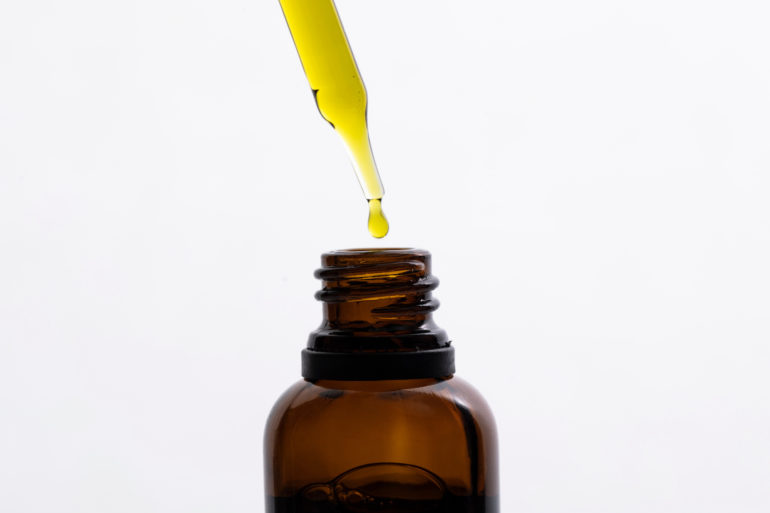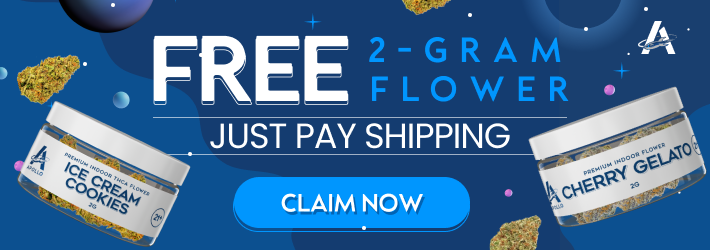Sometimes people think CBD is not psychoactive, but it’s actually the opposite. CBD works on different targets that may help improve mood, relieve anxiety, protect neurons, boost endocannabinoids, fight inflammation, and reduce seizures as purified, FDA-approved Epidiolex®.
THC, while intoxicating, also has promising therapeutic uses that unfortunately are not widely recognized yet. THC and CBD together may relieve symptoms of chronic pain, nausea and vomiting, muscle spasms, and insomnia.
CBD is well-tolerated and may help counter THC-induced psychoactive, physiological, and anxious side effects. CBD is federally legal, while THC is state-restricted and only synthetic forms are FDA-approved.
CBD vs. THC: Key Differences
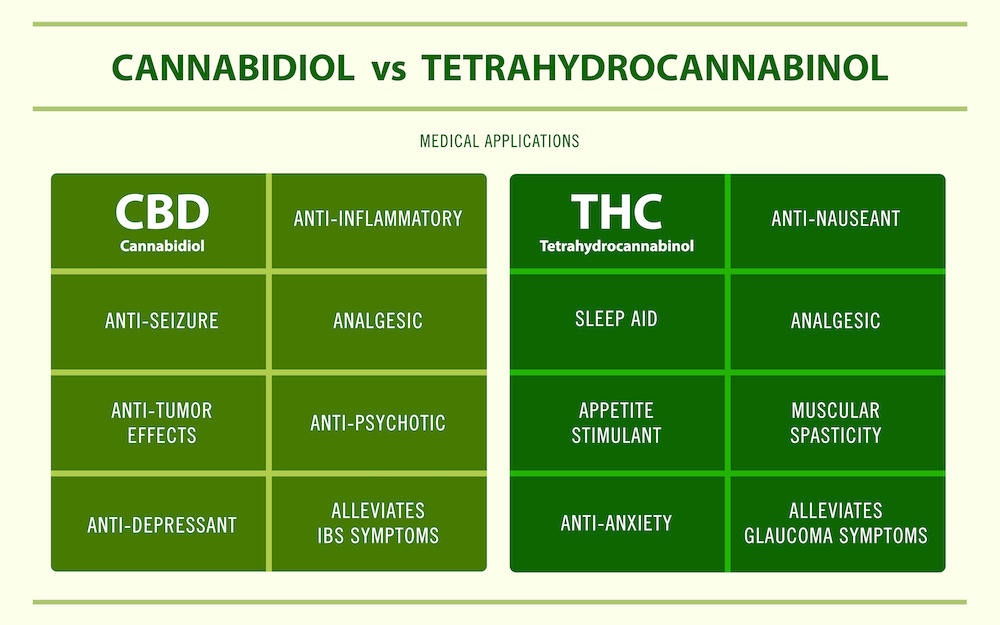
Beginners in the cannabis world are often overwhelmed by the differences between THC and CBD. There are many differences, but the first and most important to learn is that CBD is non-intoxicating while THC will get you high.
THC’s intoxicating properties matter a lot to THC-sensitive people and special populations like the elderly, who may find THC too intense or dizzying. However, intoxication also creates the possibility of cannabis tolerance, abuse, and dependence.
CBD is a great option for symptomatic relief while maintaining productivity and sobriety. It allows for the usual and necessary activities of daily life without the cognitive, memory, or learning impairments associated with THC.
For those with rare childhood seizure disorders, CBD in the form of the pharmaceutical Epidiolex® is a life-changing medication that decreases the burden of drop-seizure attacks. Contrarily, young adults under 25 have developing brains that could be compromised by early introduction to THC.
The term “medical cannabis card” is a misnomer. Because natural THC in cannabis does not have the same legality and degree of rigorous testing, it cannot be prescribed – only recommended by a qualified health professional in your state for a specific condition. Ironically, synthetic delta-9 THC is available in prescription Nabilone and Dronabinol.
Characteristics
- THC and CBD are cannabis’ two major cannabinoids
- CBD is subtly psychoactive without intoxication
- THC is noticeably psychoactive and intoxicating; impairment means tolerance, dependence, and cannabis abuse are possible
- THC and CBD have similar therapeutic potentials that are best when combined
Sourcing
- THC is the most common cannabinoid found in type I cannabis
- CBD is the dominant cannabinoid in type III cannabis or hemp
- Rarely found in nature, type II cannabis has a balanced 1:1 THC:CBD ratio
- THC, CBD, and minor cannabinoids can be found or bred for in varying degrees
Legality
- CBD comes in fully federally legal OTC, dispensary, and prescription formulations
- Natural THC is only available at state-legal, licensed dispensaries; synthetic THC is legally prescribed to patients with chemo-related nausea or AIDS
Drug Testing
- CBD as an isolate or broad-spectrum product should not cause a positive drug screen for cannabinoids, unless the product has any amounts of THC
- THC is metabolized into THC-COOH, the compound measured in drug tests that directly causes a positive result
THC: Possible Benefits and Side Effects
THC Benefits
Cannabis is the world’s most commonly used illicit substance due to THC’s obviously pleasurable and therapeutic effects, both recognized throughout the ages. Modern studies note that the biggest indication for cannabis recommendations is pain management.
The best-documented uses of THC, natural or synthetic, so far include:
- Treatment-resistant nausea and vomiting from chemotherapy (Dronabinol, Nabilone)
- Appetite stimulant in AIDS (Dronabinol)
- Muscle spasticity, particularly for MS (Nabiximols, 1:1 THC:CBD)
THC is also believed to have underlying properties useful for:
- Chronic pain (possibly more effective with CBD)
- PTSD
- Inflammation
- Crohn’s Disease
- Severe nausea
- Neurodegeneration (Alzheimer’s, ALS, Epilepsy, Seizures)
- Short-term sleep improvements
- Cancer
THC Adverse Effects
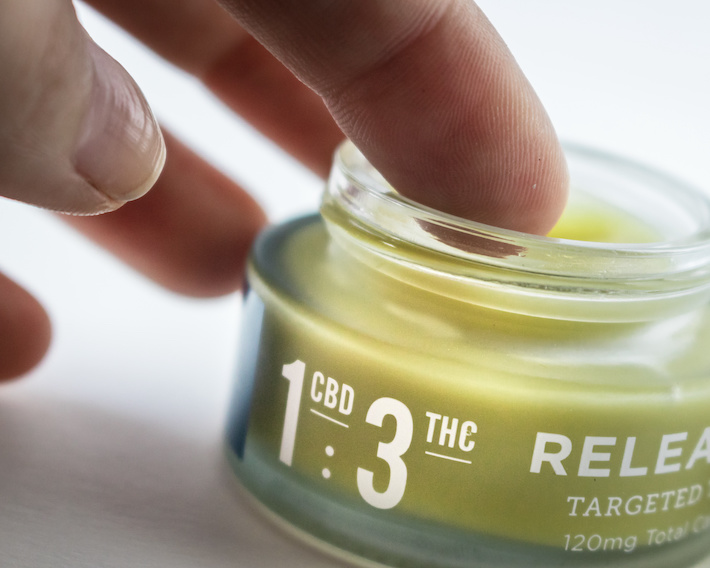
The psychotropic and intoxicating effects of THC are usually the most pronounced, which is why newcomers need to be careful. Some people see many of them as a good thing while learning to manage their dosing over time. These include:
- Euphoria or dysphoria
- Cognitive impairment
- Sensory and perception enhancement
- Short-term memory and learning deficits
However, the physical side effects can be uncomfortable but are also usually temporary and dose-dependent, including:
- Elevated heart rate
- Lower blood pressure
- Dizziness upon standing
- Dry mouth
- Red, dry eyes
CBD: Possible Benefits and Side Effects
CBD Benefits
The biggest advantage of CBD is non-intoxication. Besides the specific indications for FDA-approved use of purified pharmaceutical oral CBD, there is weaker evidence for CBD as:
- Anti-inflammatory and antioxidant
- Neuroprotective
- Pain relieving
- Relief of psychiatric symptoms (social anxiety, PTSD, ASD, ADHD, Schizophrenia, Tourette Syndrome)
- Antiemetic
- Antiarthritic
- Anticancer
Remember that CBD can also be used to mitigate some of the uncomfortable effects of taking too much THC, and possibly THC withdrawal.
CBD Adverse Effects
While it is not psychoactive, CBD is not without side effects. It is usually well-tolerated, even in high doses. CBD shows few serious adverse effects only seen in epileptic patients because of the specific medications they’re concurrently taking.
The most commonly reported side effects of CBD are:
- Reduced appetite
- Sleepiness and drowsiness
- Diarrhea and upset stomach
- Headache
- Nausea and vomiting
- Rash
Will THC or CBD Show Up on a Drug Test?

Hemp-derived CBD products may contain up to 0.3% THC by dry weight. In the short term, it is unlikely that such products can cause a positive result, but over time and with regular use the small amount of THC metabolites can accumulate and cause a flagged result.
CBD is also available in isolate and broad spectrum, or “THC-free”, formulations. These are very unlikely to trigger a positive result unless the product quality is suboptimal and THC-contaminated.
RELATED: Can CBD Show Up in a Drug Test?
Consuming natural herbal cannabis, dispensary products, or synthetic prescriptions with THC can cause a positive screen for cannabinoids.
Are THC and CBD Legal?
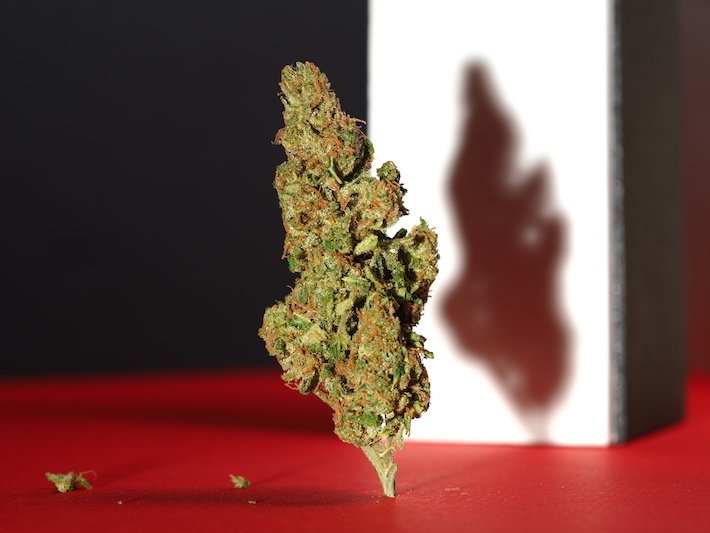
CBD is available over the counter thanks to the 2018 Farm Bill, which legalized the production of hemp and hemp-derived products like CBD oils, balms, and more.
Medical and recreational cannabis and THC products have more than 0.3% THC, and thus are federally illegal. Only a licensed dispensary can legally process and sell cannabis in your state.
More controversially, hemp-derived delta-9 THC is also legally available in select states.
Conclusion: THC vs. CBD
THC and CBD are the heavy hitters of cannabis, meaning they do most of the mind and body lifting. The discovery of the endocannabinoid system (ECS) was thanks to our curiosity about what makes THC so magical.
CBD is best known for its anti-anxiety and anticonvulsant uses, earning the first FDA approval of any naturally-derived cannabinoid. Choosing between the two, or a combination of both, usually depends on your situational environment, preferences, and tolerance of psychoactive effects.
Related Articles
- Delta-8 THC vs. CBD
- Delta-8 THC vs. Delta-9 THC
- CBN vs. CBG
- CBG vs. CBD
- THC vs. THCA
- THC vs. HHC
- THC-O vs. THCP
References (10)
- Ebbert, J. O., Scharf, E. L., & Hurt, R. T. (2018). Medical Cannabis. Mayo Clinic Proceedings, 93(12), 1842–1847. https://doi.org/10.1016/j.mayocp.2018.09.005
- Khan, R., Naveed, S., Mian, N., Fida, A., Raafey, M. A., & Aedma, K. K. (2020). The therapeutic role of Cannabidiol in mental health: A systematic review. Journal of Cannabis Research, 2, 2. https://doi.org/10.1186/s42238-019-0012-y
- National Academies of Sciences, E., Division, H. and M., Practice, B. on P. H. and P. H., & Agenda, C. on the H. E. of M. A. E. R. and R. (2017). Therapeutic Effects of Cannabis and Cannabinoids. In The Health Effects of Cannabis and Cannabinoids: The Current State of Evidence and Recommendations for Research. National Academies Press (US). https://www.ncbi.nlm.nih.gov/books/NBK425767/
- American Cancer Society. Marijuana and Cancer | Cannabinoid Drugs. ACS. (3 August 2022). Retrieved August 2, 2023, from: https://www.cancer.org/cancer/managing-cancer/treatment-types/complementary-and-integrative-medicine/marijuana-and-cancer.html
- Britch, S. C., Babalonis, S., & Walsh, S. L. (2021). Cannabidiol: Pharmacology and Therapeutic Targets. Psychopharmacology, 238(1), 9–28. https://doi.org/10.1007/s00213-020-05712-8
- Blesching, U. (2020, September 27). Cannabis Chemotypes. Cannakeys. https://cannakeys.com/cannabis-chemotypes/
- Walsh, K. B., McKinney, A. E., & Holmes, A. E. (2021). Minor Cannabinoids: Biosynthesis, Molecular Pharmacology and Potential Therapeutic Uses. Frontiers in Pharmacology, 12, 777804. https://doi.org/10.3389/fphar.2021.777804
- Kwee, C. M. B., Leen, N. A., Van der Kamp, R. C., Van Lissa, C. J., Cath, D. C., Groenink, L., & Baas, J. M. P. (2023). Anxiolytic effects of endocannabinoid enhancing compounds: A systematic review and meta-analysis. European Neuropsychopharmacology, 72, 79–94. https://doi.org/10.1016/j.euroneuro.2023.04.001
- Crippa, J. a. S., Hallak, J. E. C., Machado-de-Sousa, J. P., Queiroz, R. H. C., Bergamaschi, M., Chagas, M. H. N., & Zuardi, A. W. (2013). Cannabidiol for the treatment of cannabis withdrawal syndrome: A case report. Journal of Clinical Pharmacy and Therapeutics, 38(2), 162–164. https://doi.org/10.1111/jcpt.12018
- Ranum, R. M., Whipple, M. O., Croghan, I., Bauer, B., Toussaint, L. L., & Vincent, A. (2023). Use of Cannabidiol in the Management of Insomnia: A Systematic Review. Cannabis and Cannabinoid Research, 8(2), 213–229. https://doi.org/10.1089/can.2022.0122
